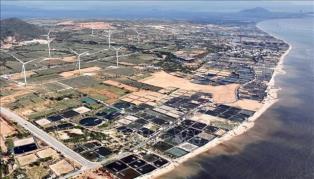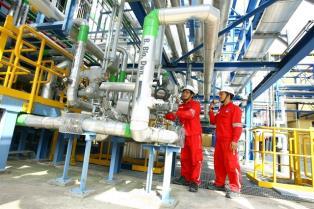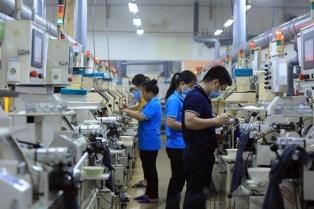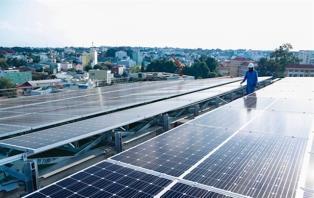Việt Nam seeks World Bank green credit to boost low-emission rice production
In 2024, the World Bank committed a US$350 million loan to the Vietnamese Government to implement the one-million-hectare project which associated with green growth in the Mekong Delta.

CẦN THƠ — Việt Nam has called on the World Bank (WB) to provide preferential “green credit” to support mechanisation in agriculture and help cooperatives access funding to produce organic fertiliser from rice straw, thereby advancing the cultivation of high-quality, low-emission rice.
The proposal was put forward by Deputy Minister of Agriculture and Environment Trần Thành Nam at a working session in Cần Thơ on November 27 with Carlos Felipe Jaramillo, WB Vice President for East Asia and the Pacific. The discussion centred on the sustainable development project for one million hectares of high-quality, low-emission rice in the Mekong Delta.
Nam noted that after nearly two years of implementation, the programme had surpassed expectations, particularly in shifting farmers’ production methods and mindset. The Ministry of Agriculture and Environment has created a measurement, reporting, and verification (MRV) protocol for cutting greenhouse gases, which now serves as the legal foundation for use at the provincial level.
At present, almost 400,000 hectares of rice are cultivated under sustainable practices, including 20,000 hectares set to apply MRV procedures during the 2025–26 winter–spring crop.
The Deputy Minister attributed progress to support from international partners, including the WB, the International Rice Research Institute (IRRI) and the Transformative Carbon Asset Facility (TCAF).
TCAF has committed a non-refundable loan of US$20 million to Việt Nam for low-emission rice cultivation, but has warned that disbursement may be halted if implementation falls behind schedule.
To keep the programme on track, Nam proposed that the WB work with TCAF to maintain the pledged loan, stressing that the Vietnamese Government has set 2027–28 as the earliest period for allowing the sale of carbon credits.
He highlighted that several pilot models have already produced measurable emission reductions and could form the basis for future carbon credit payments.
The official also asked the WB to expedite the disbursement of its planned two-year non-refundable support package for training and pilot deployment under the programme.
Responding to the recommendations, Mariam J. Sherman, WB Country Director for Vietnam, Laos and Cambodia, affirmed that the WB would facilitate discussions with TCAF regarding the $20 million commitment. She also encouraged Việt Nam to accelerate programme progress and reaffirmed the WB’s readiness to continue accompanying the Government.
Both sides agreed to conduct a mid-term review and explore options to expand the one-million-hectare project.
Earlier the same day, Jaramillo and the WB delegation visited New Green Farm Cooperative in Thới Long ward, Cần Thơ, to observe the cultivation model first-hand. The cooperative has completed four production cycles across 148 hectares, achieving yields of 6–8 tonnes per hectare. Post-harvest straw is collected for mushroom production and later processed into organic fertiliser for rice, vegetables and orchards, helping reduce straw burning, protect the environment and improve local incomes.
According to cooperative director Đồng Văn Cảnh, using straw-based fertiliser has reduced chemical nitrogen demand by 40 per cent, lowered production costs by around VNĐ1.7 million ($65) and increased profits by roughly VNĐ3.5 million per hectare.
In 2024, the World Bank committed a $350 million loan to the Vietnamese Government to implement the one-million-hectare project which associated with green growth in the Mekong Delta. — VNA/VNS
- Tags
- green credit





